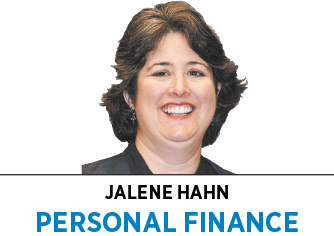Subscriber Benefit
As a subscriber you can listen to articles at work, in the car, or while you work out. Subscribe Now I was at a retreat recently with fellow planners, and one of the topics was, “Lessons Learned from the ’08 Meltdown: How Are You Preparing Your Portfolios and Clients?”
I was at a retreat recently with fellow planners, and one of the topics was, “Lessons Learned from the ’08 Meltdown: How Are You Preparing Your Portfolios and Clients?”
We know a bear is coming; we just don’t know when or how hungry it will be. I don’t worry about individuals like my son, who are young, well-educated and financially sound. I worry about retirees, especially those who have just retired. The consensus among attendees was that the portfolio construction was the easy part; managing client emotions would be more difficult.
The current focus is on restructuring portfolios to invest in more high-quality, shorter-term fixed-income instruments. The “how” is still being explored. My colleagues and I all have different approaches to portfolio construction and recognize that there is no one-size-fits-all solution. It was comforting for me to get feedback on my approach and to hear what others were doing. My focus is on working with clients to determine the balance between relatively safe securities and the need to grow their portfolios for an uncertain lifetime.
We all agreed that communicating with clients is one of the most important aspects of managing a downturn. We are now in the, “We know it is coming; we just don’t know when” phase. Pick up a financial journal or turn on the news and the opinions range from “imminent” to, “The bull is going to run forever.” There is also no consensus on what “imminent” means—now, next month or six months from now.
Over-communicating can lead to increased client anxiety, but not communicating enough implies we are not on top of the situation. Helping clients tune out the noise and focus on facts is key to maintaining perspective. At every meeting, it’s critical to focus on portfolio risk and clients’ long-term view.
Reactions vary by individual, but one overriding emotion is fear. Generally, this fear is triggered by either uncertainty or a feeling of lack of control. As planners, most of the time we fall back on logical explanations of how severe past downturns have been, how long they have lasted, and how soon portfolios bounced back.
While this type of communication appeals to the logical side of the brain, investors get in trouble because the emotional side kicks in first. That makes it difficult to slow things down enough for logical thinking to kick in. When investors panic, they forget the cardinal rule of, “Buy low, sell high.”
Another key is finding small steps individuals can take to regain a sense of control, especially when markets are declining or are extremely volatile. Falling back to my Catholic faith, we pray to saints.
I didn’t know who the patron saint of money was, but when I Googled, I came across the following quip from The Telegraph in the United Kingdom, posted in January 2009, the depths of the financial crisis:
The headline read, “Workers worried in recession should pray to patron saint of bankers, says Catholic church” The article noted that “the patron saint of financial matters is St. Matthew the Apostle.” But it added: “Depending on the severity of your situation, you may feel that the patron saint for desperate causes is more apt—St. Jude.”
If prayer is not the answer for you, other actions could be to re-evaluate spending, look at ways to cut back, or perform a stress test on your investments to highlight the worst-case scenario. This advice is most valuable for individuals who have discretionary income.
There are tons of statistics designed to make us feel better about how severe downturns can be, how long they last, and how long it takes to recover. Unfortunately, statistics do not speak to the emotional side of our brains. Communicating how actions we take now can affect a portfolio—as well as highlighting actions within our control—will calm fears and keep clients invested.•
__________
Hahn is a certified financial planner with WWA Planning and Investments. She can be reached at 812-379-1120 or [email protected].
Please enable JavaScript to view this content.
